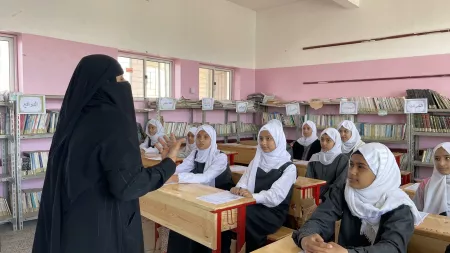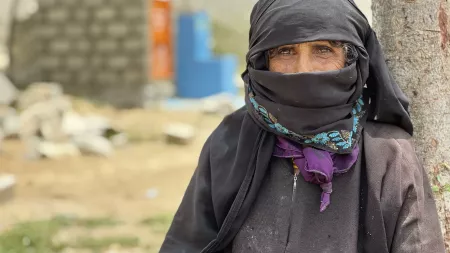A joint statement signed by 7 UN agencies, 31 international NGOs, and 60 Yemeni civil society organizations marks the first time the humanitarian and development sectors in Yemen collectively raise the alarm on the dire funding gap impacting humanitarian response efforts.
Yemen’s Humanitarian Response Plan (HRP), which sought to support over 17 million people, has only seen just over one third of the funding required. This is the extreme level of a downward trend in support over the last 3 years. In 2019, donors covered 87 percent of required funds; in 2022 this decreased to 57 percent, and now only 31 percent.
As world leaders come together at the 78th UN General Assembly in New York in the coming days, and with only 3 months till the end of 2023, the 98 organizations are urging for more support to continue to provide life-saving aid to Yemenis.
The low humanitarian funding is preventing us from meeting the most critical humanitarian needs and saving lives.says CARE Yemen Country Director, Iman Abdullahi.
“With so much happening across the globe, it could be easy to lose sight of the concerning situation that organizations such as CARE are witnessing unfold across Yemen," highlights Abdullahi.
Yemen's future at stake
CARE and other signatories to the joint statement call for donors to ensure humanitarian funding is made available as early as possible in the year, rather than towards the end and at consistent intervals so that humanitarian response is not interrupted. With Yemen now at a critical juncture that could bring hope for longer-term peace, the people of Yemen should be looking into the future and rebuilding their lives. With sectors such as education, protection and health traditionally seeing underfunding, the statement highlights the determining role investments in such areas have in Yemen’s future.

Support to Yemen’s thriving civil society is essential not only to save lives but also to avoid regressing away from gains already made towards people's resilience, education and livelihoods. The statement also calls for more volume and quality funding to Yemeni organizations, including to women-led organizations, that are at the forefront of serving people in need.
Yemenis are exhausted from years of conflict and have been impacted in so many ways,says Bushra Aldukhainah, CARE Area Manager for Hajjah, in Northwest Yemen.
“And it’s critical to already start thinking about how to meet longer-term, development needs. We hope that in the weeks and months ahead we will continue to see signs that point towards peace in the future. But in the meantime, we should not forget about the immense humanitarian needs we see every day and the risks that they will grow because the right type of funding simply isn't available,” warns Aldukhainah.
CARE's work in Yemen
CARE International has been present in Yemen since 1992 and operates across 14 governorates, reaching 2.8 million people a year with food security and livelihoods, water, sanitation and hygiene (WASH), reproductive health, women’s economic empowerment, and education programs.
Read the joint statement here.
For media inquiries, please contact Iolanda Jaquemet, Senior Humanitarian Communications Coordinator, via [email protected].
